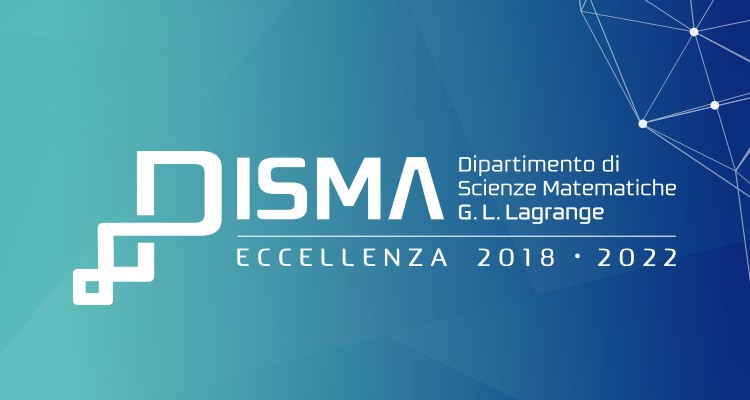

PhD courses
Network systems in science and technology
Francesco BULLO, University of California Santa Barbara
September 16-20, 2019
DISMA, Aula Buzano, mon-fri 09:00-12:00
Preliminary Sillabus:
- Perron–Frobenius theory, algebraic graph theory, mathematical models for the evolution of opinions;
- Laplacian matrices, systems, flows and diffusively-coupled systems;
- Network flow systems and Metzler matrices;
- Nonlinear network systems: Lyapunov and contraction methods;
- Kuramoto coupled oscillators and active power flow.
Modelling and distributed control of the power grid
Sandro ZAMPIERI, Università di Padova
October 16-17, 2019
DISMA, Aula Buzano, wed-thu 14:00-16:00
Abstract:
The power grid is a very complex system constituted of many interacting components. Various models have been proposed in the literature with different level of complexity and accuracy. The power flow model is widely used for control and monitoring purposes. It is a static nonlinear equilibrium model which describes the balancing of active and reactive power flows in the grid. In the first part of the course we describe this model and we provide a method that allows to determine when there exists a solution of such a model and we provide a linear approximation of this solution.
In the second part of the course we use this approximation for the synthesis of a control strategy able to control the voltages in the grid by acting on the reactive power flows. This is done by applying the gradient method to an optimization problem. We show that the gradient needs not to be computed, but instead it comes for free as an output of the power grid that can be read with a suitable choice of sensors. Moreover, the algorithm that comes out is suitable for a distributed leaderless implementation.
Targeting in social networks
Agnieszka RUSINOWSKA, Centre d'Economie de la Sorbonne
November 11-12, 2019
DISMA, Aula Buzano, mon-tue 09:00-12:00
Abstract:
The aim of this mini-course is to deliver a survey on different approaches to targeting in social networks. I am going to present models in non-competitive as well as competitive environments, i.e., in the presence of social planner and competing persuaders. In particular, targeting in computer science and complex systems, with an algorithmic perspective for studying the target selection for the optimal adoption and diffusion of innovation, will be briefly discussed.
The main focus of the mini-course is on analytical models of targeting in economics, where targets are frequently characterized by new or existing centrality measures.